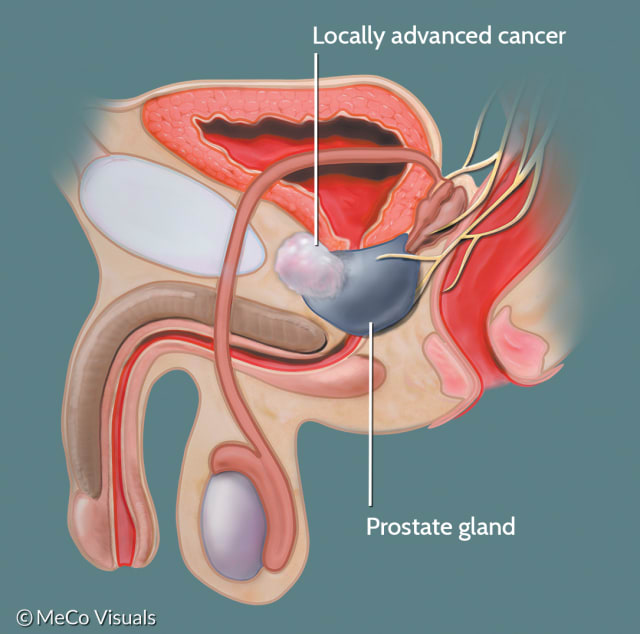Unlocking Pleasure: How Mental Health Affects Sexual Satisfaction

The Link Between Mental Well-being and Sexual Satisfaction

Mental well-being and sexual satisfaction are intricately connected, with the former playing a crucial role in the latter. When our mental health is in balance, we are more likely to experience a fulfilling and pleasurable sexual life. Research has shown that individuals with higher levels of mental well-being report greater sexual satisfaction, indicating the importance of addressing mental health as a key aspect of sexual well-being.
One of the ways in which mental well-being influences sexual satisfaction is through the impact of stress and anxiety. Stress and anxiety can be detrimental to sexual pleasure, as they can lead to decreased libido, difficulty in achieving arousal and orgasm, and even sexual dysfunction. These negative emotions can create a distraction and prevent individuals from fully engaging in and enjoying sexual experiences.
Additionally, depression and low mood can also significantly affect sexual pleasure. Depression often leads to a decrease in interest and desire for sexual activity, and may result in difficulties in becoming aroused or experiencing orgasm. The fluctuation of hormones and neurotransmitters associated with depression can disrupt the delicate balance required for sexual satisfaction. It is essential to address and manage these mental health conditions to improve overall well-being and enhance sexual pleasure.
Understanding the Role of Mental Health in Sexual Pleasure
Mental health plays a crucial role in one’s overall well-being, and this extends to sexual pleasure as well. It is important to understand the interplay between mental health and sexual pleasure in order to promote a satisfying and fulfilling sexual experience.
Numerous studies have indicated a strong correlation between mental health and sexual satisfaction. Research has shown that individuals who struggle with conditions such as depression, anxiety, or stress are more likely to experience difficulties in their sexual lives. These mental health issues can have a negative impact on libido, arousal, and overall sexual functioning. For example, high levels of stress and anxiety can lead to decreased sexual desire and performance problems. Depression, on the other hand, can cause a loss of interest in sex and reduced pleasure in sexual activities.
Moreover, mental health challenges can also affect body image, which in turn influences sexual satisfaction. Individuals with poor body image may feel self-conscious and less confident in their intimate encounters, leading to reduced enjoyment of sexual experiences. This highlights the importance of addressing body image issues in order to improve sexual well-being. By prioritizing mental health and practicing self-care, individuals can enhance their overall sexual pleasure and satisfaction. It is crucial to seek professional help and explore therapeutic approaches that address mental health issues alongside sexual concerns, as a holistic approach is often necessary for optimal sexual well-being.
Exploring the Impact of Stress and Anxiety on Sexual Satisfaction
When it comes to sexual satisfaction, it’s important to recognize the impact that stress and anxiety can have on our overall well-being. Stress and anxiety are common experiences that can affect every aspect of our lives, including our sexual relationships. Research suggests that high levels of stress and anxiety can lead to a decrease in sexual desire, arousal, and satisfaction.

One of the main ways that stress and anxiety can interfere with sexual satisfaction is by disrupting the body’s natural response to sexual stimulation. When we are stressed or anxious, our bodies release stress hormones like cortisol, which can dampen sexual desire and impair sexual function. In addition, stress and anxiety can make it difficult to relax and fully engage in sexual activity, leading to feelings of tension and dissatisfaction.
Not only can stress and anxiety affect our physical responses to sexual stimulation, but they can also have a negative impact on our mental and emotional well-being. Constant worrying and racing thoughts can make it difficult to be fully present in the moment and enjoy the pleasurable sensations of intimacy. Furthermore, stress and anxiety can create a cycle of negative thoughts and feelings, leading to decreased self-confidence and a decrease in overall sexual satisfaction.
It’s important to address and manage stress and anxiety in order to preserve and enhance our sexual well-being. Techniques such as relaxation exercises, mindfulness meditation, and stress management strategies can help to reduce stress and anxiety levels and improve overall sexual satisfaction. Additionally, seeking support from a mental health professional can provide valuable guidance and tools for managing stress and anxiety in a healthy way.
By understanding the impact that stress and anxiety can have on our sexual satisfaction, we can take proactive steps to manage and reduce these factors, ultimately improving our overall well-being and enhancing our sexual experiences.
How Depression and Low Mood Can Affect Sexual Pleasure
Depression and low mood can significantly impact sexual pleasure, leading to a decrease in libido and a disruption in intimate relationships. When individuals are experiencing depression, their interest in sex can diminish, leading to a decline in sexual desire and arousal. This can result in a lack of sexual satisfaction and enjoyment, which can further exacerbate feelings of frustration and sadness.
Studies have shown that depression can disrupt the normal hormonal balance in the body, affecting the production of testosterone in men and estrogen in women. These hormonal imbalances can contribute to reduced sexual desire and performance. Additionally, depression can affect the brain’s neurotransmitters, such as serotonin and dopamine, which play a crucial role in regulating mood and sexual function.
Furthermore, depression often brings with it a range of emotional and physical symptoms, such as fatigue, insomnia, and body aches, which can make engaging in sexual activity a challenging and unappealing task. The feelings of worthlessness and low self-esteem associated with depression can also impact body image and self-confidence, further impacting sexual pleasure.
It is important to recognize that depression is a medical condition that requires proper diagnosis and treatment. Seeking support from mental health professionals, such as therapists or psychiatrists, can provide individuals with the necessary tools to manage their depression and improve their overall well-being, including their sexual satisfaction.
The Connection Between Body Image and Sexual Satisfaction
Body image plays a significant role in sexual satisfaction, as it can greatly impact one’s self-esteem and confidence in the bedroom. When individuals have a positive body image, they are more likely to feel comfortable and free to explore their desires and engage in intimate experiences. On the other hand, negative body image can lead to feelings of self-consciousness, shame, and reduced sexual enjoyment.
Research has shown that body image concerns can affect both men and women, although they may manifest differently. For women, societal pressure to conform to narrow beauty standards often leads to dissatisfaction with their bodies, which can have a detrimental effect on their sexual well-being. Men, on the other hand, may experience body image issues related to muscularity and size, which can also impact their sexual confidence. In both cases, these concerns can create anxiety and hinder sexual pleasure.
Addressing Trauma and its Effects on Sexual Well-being
Trauma can have profound effects on a person’s overall well-being, including their sexual health and satisfaction. It is important to address these effects and understand the ways in which trauma can impact one’s sexual well-being. Research has shown that individuals who have experienced trauma may often face challenges related to intimacy, arousal, desire, and overall sexual functioning.

Trauma can lead to a range of sexual difficulties, such as decreased libido, pain during intercourse, difficulties achieving orgasm, and a general loss of interest in sexual activities. These experiences may be accompanied by feelings of shame, guilt, or fear, further complicating the individual’s sexual well-being. It is crucial to recognize and acknowledge that these effects are valid and real, as it often takes time and support to heal from trauma and reclaim one’s sexual pleasure and satisfaction.
Recovery and healing from trauma require a comprehensive approach that addresses both the psychological and physical aspects. This may involve therapy or counseling, where individuals can explore their experiences, emotions, and beliefs surrounding their trauma, as well as learn coping strategies. In some cases, trauma-focused therapy or specialized approaches, such as cognitive-behavioral therapy (CBT) or eye movement desensitization and reprocessing (EMDR), may be recommended. Additionally, healthcare professionals may provide guidance and support regarding specific sexual difficulties, such as pain management techniques or the use of lubricants.
Remember, addressing trauma and its effects on sexual well-being requires a compassionate and understanding approach. Seeking professional help from qualified healthcare professionals who specialize in trauma and sexual health can provide individuals with the tools and support they need for healing and recovery. Let us explore further the topic of unravelling the influence of self-esteem on sexual pleasure and how it can positively impact one’s sexual well-being.
Unraveling the Influence of Self-esteem on Sexual Pleasure

Self-esteem plays a significant role in shaping our overall well-being, including our sexual pleasure. It is no surprise that our confidence and self-worth impact our experiences in the bedroom. When we are comfortable and accepting of ourselves, it becomes easier to let go, be vulnerable, and fully embrace the pleasures of intimacy. On the other hand, low self-esteem can hinder sexual satisfaction, leading to feelings of insecurity, inadequacy, and diminished pleasure.
Research has shown a clear association between self-esteem and sexual pleasure. A study conducted by Sánchez-Fuentes, Santos-Iglesias, and Sierra (2014) found that individuals with higher levels of self-esteem reported greater sexual satisfaction. This finding suggests that when we feel good about ourselves, we are more likely to engage in sexual activities with confidence and enjoyment.
Moreover, self-esteem can influence our body image perceptions, which in turn impact sexual pleasure. Acceptance and appreciation of our bodies play a crucial role in our sexual confidence and satisfaction. When we have a positive body image, we are more likely to feel comfortable and desirable, enhancing our overall sexual experience.
It is essential to recognize that self-esteem is not fixed but rather a fluctuating aspect of our lives. Boosting self-esteem can be achieved through various strategies, such as practicing self-care, engaging in positive self-talk, setting and achieving personal goals, and seeking therapy when needed. Understanding the influence that self-esteem has on our sexual pleasure empowers us to take steps towards improving our well-being and enhancing our intimacy with ourselves and our partners.
The Role of Communication in Enhancing Sexual Satisfaction
Effective communication plays a crucial role in enhancing sexual satisfaction. When it comes to intimacy, open and honest communication with your partner can lead to a deeper understanding of each other’s desires, needs, and boundaries. It allows both partners to express their feelings and concerns, paving the way for a supportive and fulfilling sexual relationship.
Clear communication is especially important when it comes to consent and establishing boundaries. Consent is an ongoing conversation that should be respected at all times. By openly discussing what is comfortable and enjoyable for both partners, you can ensure that everyone feels safe and has their desires met. This builds trust and creates a space where both individuals can freely explore their sexual desires without fear or pressure.
Furthermore, effective communication during sexual encounters can help enhance pleasure and satisfaction. By expressing your desires, fantasies, and preferences, you can guide your partner in pleasing you and vice versa. This mutual exchange of information can lead to a deeper connection and a more fulfilling and intimate experience.
In conclusion, open and honest communication is essential for enhancing sexual satisfaction. It allows partners to establish consent and boundaries, explore desires and preferences, and create a safe and supportive environment for sexual intimacy. By fostering effective communication, individuals can experience enhanced pleasure and satisfaction in their sexual relationships.
Overcoming Performance Anxiety for a Fulfilling Sexual Experience
Performance anxiety can be a common concern for individuals seeking a fulfilling sexual experience. The fear of not meeting expectations, pleasing a partner, or experiencing performance issues can create significant distress and hinder sexual satisfaction. Understanding and confronting performance anxiety can greatly enhance one’s ability to enjoy a fulfilling sexual experience.
One of the key steps in overcoming performance anxiety is knowledge and education. Understanding that performance anxiety is a common occurrence can help reduce feelings of shame or inadequacy. It is important to recognize that sexual performance is not solely dependent on physical aspects, but also includes emotions, communication, and intimacy. Seeking accurate information about sexual health and functioning can help dispel myths and misconceptions, allowing individuals to approach their sexual experiences with confidence and realistic expectations. Talking to a healthcare professional or therapist who specializes in sexual health can provide valuable insights and guidance in addressing performance anxiety.
Examining the Effects of Medication and Mental Health Treatments on Sexual Pleasure
Medications and mental health treatments play a substantial role in addressing various mental health conditions and their associated symptoms. While these treatments aim to alleviate symptoms and improve overall well-being, it is important to acknowledge their potential impact on sexual pleasure. In many cases, medications and mental health treatments can have diverse effects on sexual function, libido, and arousal.

Certain psychiatric medications, such as selective serotonin reuptake inhibitors (SSRIs), commonly prescribed to alleviate symptoms of depression and anxiety, have been linked to sexual side effects. These side effects may include decreased libido, delayed ejaculation, erectile dysfunction, and difficulty achieving orgasm. Research suggests that SSRIs can affect serotonin levels in the brain, which in turn impact sexual desire and function. Additionally, other mental health treatments like cognitive behavioral therapy (CBT) may address underlying issues contributing to sexual dissatisfaction, but the process can take time and patience.
It is vital to have open and honest communication with medical professionals regarding any concerns related to sexual pleasure while undergoing medication or mental health treatments. By discussing these concerns, healthcare providers can explore alternative medications, adjust dosages, or recommend additional interventions that may help mitigate sexual side effects. In some cases, they may suggest the inclusion of a sexual health specialist as part of the treatment team to provide comprehensive care. Remember, prioritizing mental health is of utmost importance, and healthcare providers are equipped to provide support and guidance throughout the treatment journey.
Navigating Relationship Challenges and their Impact on Sexual Satisfaction
Relationship challenges can have a significant impact on sexual satisfaction, as the quality of our intimate partnerships can directly influence our sexual well-being. When couples face difficulties in their relationship, such as unresolved conflicts, lack of trust, or communication breakdowns, it can create emotional and psychological barriers that hinder sexual pleasure. Intimacy and connection are vital components of a fulfilling sexual experience, and when these elements are compromised due to relationship challenges, it can lead to dissatisfaction and frustration.
Research has shown that couples who experience high levels of relationship satisfaction tend to report higher levels of sexual satisfaction as well. Conversely, relationship distress is strongly associated with decreased sexual satisfaction and desire. This connection between relationships and sexual satisfaction highlights the importance of addressing and navigating relationship challenges in order to enhance sexual well-being. By working through conflicts, improving communication, and fostering emotional intimacy, couples can create a supportive and nurturing environment that positively impacts their sexual satisfaction. It is crucial to recognize the interconnectedness of relationships and sexual pleasure, as addressing and resolving relationship challenges can contribute to a more fulfilling and enjoyable sexual experience.
Rediscovering Intimacy and Connection for Improved Sexual Well-being
Intimacy and connection are fundamental aspects of human relationships, which play a vital role in enhancing sexual well-being. When individuals prioritize these elements, they can create a foundation for deeper emotional and physical intimacy, leading to a more fulfilling sexual experience. Rediscovering intimacy and connection requires open and honest communication, understanding, and a willingness to explore and meet each other’s needs.
Building a strong emotional connection is essential for improved sexual well-being. This involves actively listening to your partner, being present in the moment, and showing empathy and compassion. By fostering emotional intimacy, individuals can create an environment of trust and vulnerability, allowing for deeper connections and enhanced sexual pleasure.
In addition to emotional intimacy, physical intimacy is crucial for improving sexual well-being. Engaging in activities that promote physical closeness, such as cuddling, holding hands, or simply spending quality time together, can strengthen the bond between partners. Moreover, physical affection outside of sexual encounters can increase feelings of intimacy, leading to a more satisfying sexual relationship.
Ultimately, rediscovering intimacy and connection requires a mutual commitment from both partners. By prioritizing open communication, emotional vulnerability, and physical closeness, individuals can cultivate a deeper connection and enhance their sexual well-being.
The Importance of Self-care and Mental Health Practices in Enhancing Sexual Pleasure
Self-care and mental health practices play a crucial role in enhancing sexual pleasure. Taking care of our mental well-being not only contributes to overall happiness and life satisfaction but also has a significant impact on our sexual experiences. When we prioritize self-care and practice healthy coping mechanisms, we improve our emotional resilience, reduce stress levels, and create a conducive environment for intimate connections.
Research has shown that individuals who engage in self-care activities such as regular exercise, adequate sleep, healthy eating, and stress management techniques tend to report higher levels of sexual satisfaction (Source: Journal of Sexual Medicine, 2017). This can be attributed to the fact that self-care promotes positive body image, boosts self-esteem, and fosters a strong sense of emotional well-being.
In addition to self-care, mental health practices such as therapy, mindfulness, and relaxation techniques can also have a profound impact on our sexual pleasure. Therapy can help address underlying emotional concerns, improve communication skills, and provide guidance on navigating relationship challenges that may impact sexual satisfaction. Mindfulness and relaxation techniques, on the other hand, can help individuals stay present in the moment, reduce performance anxiety, and heighten sensations during sexual encounters.
By incorporating self-care and mental health practices into our daily lives, we can create a solid foundation for sexual well-being. It is important to remember that prioritizing our mental health not only benefits us individually but also strengthens our intimate connections, fostering a fulfilling and satisfying sexual experience. So, let’s embrace self-care and actively work on our mental well-being for a healthier and more pleasurable sexual journey.
Seeking Professional Help: Therapeutic Approaches to Addressing Mental Health and Sexual Satisfaction
When it comes to addressing mental health issues and improving sexual satisfaction, seeking professional help can be a crucial step on the path to healing and well-being. Therapeutic approaches are designed to offer individuals a safe and supportive environment where they can explore their concerns, develop coping strategies, and work towards a more fulfilling sexual life.
One therapeutic approach that can significantly benefit individuals struggling with mental health and sexual satisfaction is cognitive-behavioral therapy (CBT). CBT focuses on identifying and challenging negative thought patterns and behaviors that can hinder sexual satisfaction. It aims to provide individuals with the tools to manage stress, anxiety, and depression, which are often underlying factors in sexual difficulties. Through this approach, individuals can gain a deeper understanding of their emotions and beliefs, develop healthier coping mechanisms, and enhance their sexual well-being.
Another therapeutic approach that can be effective in addressing mental health and sexual satisfaction is psychoeducation. This approach involves providing individuals with information and knowledge about the psychological and physiological aspects of sexuality. It helps individuals understand the potential impact of mental health issues on their sexual satisfaction and offers practical strategies to manage and overcome these challenges. By increasing awareness and equipping individuals with the necessary skills, psychoeducation empowers them to make informed decisions and take control of their sexual well-being.
By seeking professional help and exploring therapeutic approaches, individuals can embark on a journey of self-discovery and growth, leading to improved mental health and enhanced sexual satisfaction. It is important to remember that each person’s experience is unique, and finding the right therapeutic approach may require some trial and error. However, with the support and guidance of a qualified professional, individuals can overcome obstacles and find greater joy and fulfillment in their sexual lives.
Cultivating a Healthy Mindset: Strategies for Promoting Mental Well-being and Sexual Pleasure
Maintaining a healthy mindset is crucial for promoting both mental well-being and sexual pleasure. By adopting effective strategies, individuals can cultivate a positive outlook on life and enhance their overall satisfaction in intimate relationships. Let’s explore some key strategies that can contribute to the development of a healthy mindset.
First and foremost, engaging in regular self-care practices is essential for promoting mental well-being and sexual pleasure. Taking time for oneself and engaging in activities that bring joy and relaxation can significantly impact one’s mindset. This can include activities such as meditation, exercise, spending time in nature, or pursuing hobbies and interests. By prioritizing self-care, individuals can reduce stress levels, improve their mood, and enhance their overall sense of well-being, which can positively influence their sexual experiences.
Another important strategy for cultivating a healthy mindset is practicing mindfulness. Mindfulness involves being fully present in the moment and accepting one’s thoughts, emotions, and sensations without judgment. By practicing mindfulness, individuals can become more aware of their own needs, desires, and boundaries, which can contribute to healthier and more satisfying sexual experiences. Additionally, mindfulness can help reduce anxiety, enhance intimacy, and improve communication skills, all of which are essential for promoting sexual pleasure and well-being.
In conclusion, cultivating a healthy mindset is key to promoting both mental well-being and sexual pleasure. Through self-care practices and the adoption of mindfulness techniques, individuals can build a strong foundation for improved satisfaction and fulfillment in their intimate relationships. By prioritizing their mental health and well-being, individuals can enhance their overall quality of life and enjoy the benefits of a positive mindset in both their personal and sexual experiences.
How long does it typically take to see improvements in mental well-being and sexual satisfaction through therapeutic approaches?
The timeframe for seeing improvements in mental well-being and sexual satisfaction through therapeutic approaches can vary depending on the individual and their specific circumstances. It is important to work closely with a mental health professional to develop a personalized treatment plan and set realistic expectations for progress.
Are there any specific exercises or techniques that can help improve communication in a sexual relationship?
Yes, there are various exercises and techniques that can help improve communication in a sexual relationship. Some examples include active listening, using “I” statements to express needs and desires, practicing empathy and understanding, and creating a safe and non-judgmental space for open discussions about sexual preferences and boundaries.
How can someone overcome performance anxiety in order to have a fulfilling sexual experience?
Overcoming performance anxiety may require a combination of strategies. Some techniques that can be helpful include deep breathing exercises, mindfulness practices, challenging negative thoughts and beliefs, focusing on pleasure rather than performance, and gradually exposing oneself to sexual situations in a controlled and supportive environment.
Is it common for medication and mental health treatments to affect sexual pleasure?
Yes, it is common for certain medications and mental health treatments to affect sexual pleasure. Some medications, such as antidepressants and antipsychotics, can have side effects that impact sexual functioning. It is important to discuss any concerns about medication side effects with a healthcare provider so that alternative options or adjustments can be explored.
How can individuals navigate relationship challenges that may be impacting their sexual satisfaction?
Navigating relationship challenges that may be impacting sexual satisfaction requires open and honest communication, a willingness to address and work through conflicts, and a commitment to mutual understanding and compromise. Seeking couples therapy or relationship counseling can also be beneficial in providing guidance and support in resolving relationship issues.
What are some self-care practices that can enhance sexual pleasure?
Engaging in regular exercise, practicing relaxation techniques, maintaining a healthy diet, getting enough sleep, and managing stress are all self-care practices that can enhance overall well-being, including sexual pleasure. Additionally, engaging in activities that promote self-confidence and self-love, such as practicing mindfulness or engaging in hobbies, can also positively impact sexual pleasure.






